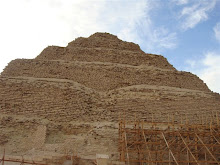In the Northern Hemisphere, the summer solstice is on June 21.
The term solstice is derived from the Latin words for "sun" and "to stand still."
As the days lengthen, the sun rises higher until it seems to stand still in the sky. The summer solstice marks the longest day and shortest night of the year.
Civilizations have celebrated the summer solstice for thousands of years, and today it is still celebrated annually in England at Stonehenge and Avebury, where crowds gather to welcome the sunrise.
Monday, 20 June 2011
Tuesday, 14 June 2011
Total lunar eclipse
Total Lunar Eclipse 15 June 2011
This takes place at times in the moon's orbit when it is completely hidden by the earth’s shadow, as cast by the sun.
On this occasion the moon is passing through the densest, central part of the shadow, which has the effect of making the eclipse appear darker.
The moon still remains visible, but less bright, and can take on a copper or red hue due to sunlight scattered on its surface through the earth's atmosphere.
The times when the lunar eclipse can be observed vary according to location.
In the UK it may be seen around 915pm - 10pm.
More details here: http://bit.ly/mru0Wj
This takes place at times in the moon's orbit when it is completely hidden by the earth’s shadow, as cast by the sun.
On this occasion the moon is passing through the densest, central part of the shadow, which has the effect of making the eclipse appear darker.
The moon still remains visible, but less bright, and can take on a copper or red hue due to sunlight scattered on its surface through the earth's atmosphere.
The times when the lunar eclipse can be observed vary according to location.
In the UK it may be seen around 915pm - 10pm.
More details here: http://bit.ly/mru0Wj
Subscribe to:
Comments (Atom)
